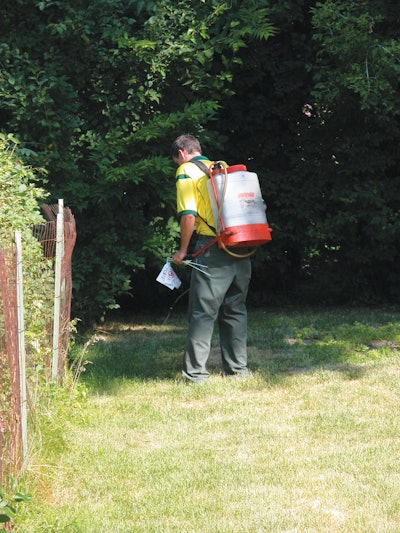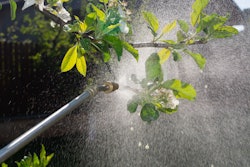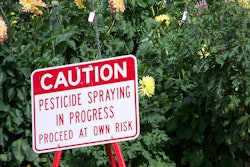
According to Green Industry Pros readership data, roughly 52% of landscape contractors offer fertilization services while 45% offer pesticide applications. That’s a lot of contractors. But at the same time, roughly 76% provide mowing and maintenance services, and 60% offer lawn renovation (i.e. aerating, dethatching and/or overseeding). That’s even more contractors.
The beauty of lawn maintenance is that it’s predictable, for the most part, and provides recurring revenue. The beauty of offering additional services such as lawn renovation, fertilization and weed control is that doing so allows lawn maintenance contractors to sell more to existing clients. Doing so, in many cases, also allows lawn maintenance contractors to provide more value to clients. Sure, you can hire a subcontractor when clients request lawn care or lawn renovation services, but many lawn maintenance contractors are concluding that they’d rather just offer the additional services themselves.
Why, then, do so many more lawn maintenance contractors branch into lawn renovation than lawn care? The answer is quite simple: Lawn renovation is easier to branch into, primarily because you don’t need a special license like you do when applying pesticides.
Nonetheless, many lawn maintenance contractors have gotten into the pesticide application game. Here’s a quick rundown of how you can become certified to do the same thing yourself.
Obtaining a commercial pesticide applicator’s license
As outlined at the EPA’s website, “commercial” pesticide applicators must know how to apply restricted-use pesticides (RUPs) properly and effectively. Thus, federal law requires any person who applies or supervises the use of RUPs to be certified in accordance with EPA regulations along with state, territorial and tribal laws. Those state, territorial and tribal authorities then certify applicators.
“Commercial Applicator” means anyone applying pesticides on land other than land they own. So this means homeowners’ lawns as well as various commercial properties.
Sometimes a given state’s requirements are more stringent than the EPA’s. But you’ll find that out when contacting your state, typically the department of agriculture, about testing for your license. At a bare minimum, the EPA requires commercial applicators to have practical knowledge of:
- Core pesticide use and safety
- At least one specific category (type/site) of application
For core pesticide use and safety, commercial applicators must show practical knowledge of:
- Pesticide label and labeling comprehension
- Safety, including pesticide hazards, first aid, personal protective equipment and emergency response
- Pesticides in the environment
- Pest identification and management
- Pesticide formulations
- Pesticide application equipment and application techniques
- Laws and regulations
There are 10 federal categories of certification. States, territories and tribes may add or delete from this list:
- Agricultural pest control: crops, animals
- Forest pest control
- Ornamental and turf pest control
- Seed treatment
- Aquatic pest control: includes pesticides applied purposefully to standing or running water
- Right-of-way pest control: maintenance of public roads, electric power lines, pipelines and railways
- Industrial, institutional, structural and health-related pest control: covers use of pesticides in and around food handling establishments, human dwellings, schools, hospitals and industrial establishments including warehouses and grain elevators
- Public health pest control: use of pesticides to control pests having medical and public health importance
- Regulatory pest control: includes state, federal and other governmental employees who use or supervise the use of pesticides in the control of regulated pests, such as the Mediterranean fruit fly
- Demonstration and research pest control
Commercial applicators are certified by a state, territory or tribe by:
- Passing a written test
- Passing a performance-based test
- Another system approved by EPA
Applicators must be recertified periodically to maintain certification. This generally requires continuing education courses every 3-5 years.
Since many states have separated duties as a result of federal or state legislation, designated contacts can be found here.
*This article was originally published in 2015 and has been updated to meet 2019 criteria.

![Doosan Bobcat Wacker Neuson Stack 2ec Js Pb V6e[1]](https://img.greenindustrypros.com/mindful/acbm/workspaces/default/uploads/2025/12/doosan-bobcat-wacker-neuson-stack2ecjspbv6e1.CPyyz8ubHn.png?auto=format%2Ccompress&bg=fff&fill-color=fff&fit=fill&h=100&q=70&w=100)







![Doosan Bobcat Wacker Neuson Stack 2ec Js Pb V6e[1]](https://img.greenindustrypros.com/mindful/acbm/workspaces/default/uploads/2025/12/doosan-bobcat-wacker-neuson-stack2ecjspbv6e1.CPyyz8ubHn.png?ar=16%3A9&auto=format%2Ccompress&bg=fff&fill-color=fff&fit=fill&h=135&q=70&w=240)








